Use These Plans to Build a Dresser That Fits Your Style!
A dresser is one of the most versatile piece of furniture. It is one of those pieces that are simple to build, and can look plain, shabby, or like a work of art when finished. These plans to build a dresser feature nine drawers which offer plenty of storage space, as well as metal brackets at each corner for an industrial look! The brackets are completely optional, of course, and are not required.
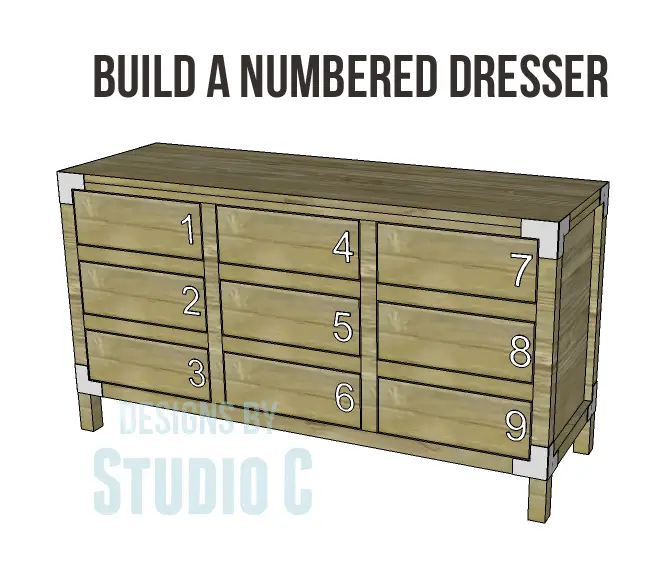
Materials:
- 1-1/4” pocket hole screws
- 2-1/2” pocket hole screws
- 2-1/2” screws
- 1-1/4” brad nails
- Edge banding, optional
- Pocket hole jig
- 9 sets of 12” drawer slides
- 9 drawer pulls
- 12 – Metal corner brackets with screws (optional)
- Wood Glue
- Sandpaper (100, 150, 220 grits)
- Finishing supplies (primer & paint, or stain, sealer)
Lumber:
- 2 – 1×2 at 6’
- 4 – 2×2 at 8’
- 2 sheets of ¾” plywood
Cut List:
- 4 – 2×2 at 25-3/8” – Legs
- 2 – 1×2 at 13” – Side Frames
- 2 – 2×2 at 13” – Side Frames
- 2 – ¾” plywood at 13” x 19-1/8” – Side Panels
- 2 – 1×2 at 45” – Back Frame & Front Stretcher
- 2 – 2×2 at 45” – Back Frame & Front Stretcher
- 1 – ¾” plywood at 19-1/8” x 45” – Back Panel
- 1 – ¾” plywood at 13” x 45” – Bottom
- 2 – 2×2 at 19-1/8” – Front Dividers
- 6 – 2×2 at 14” – Stretchers
- 4 – 2×2 at 13” – Slide Supports
- 1 – ¾” plywood at 16” x 48” – Top
- 9 – ¾” plywood at 10-1/2” x 11-1/2” – Drawer Box Bottoms
- 18 – ¾” plywood at 4-1/2” x 10-1/2” – Drawer Box Sides
- 18 – ¾” plywood at 4-1/2” x 13” – Drawer Box Front & Back
- 9 – ¾” plywood at 5-1/8” x 13-3/4” – Drawer Fronts
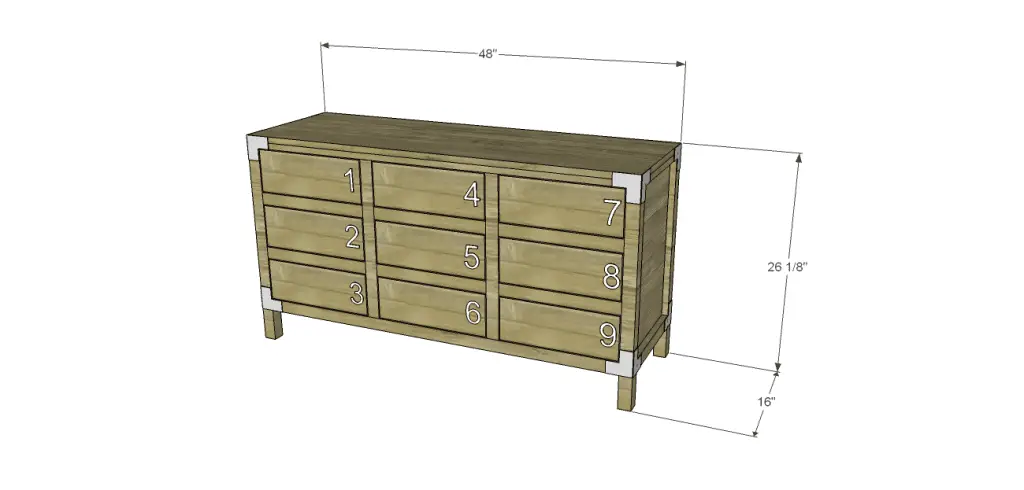 Click on the drawings for a larger view!
Click on the drawings for a larger view!
Step One
Cut the pieces for the legs, the side frames and the side panels. With the pocket hole jig set for 1-1/2” material, drill pocket holes in each end of the 2×2 pieces. Attach to the legs as shown (orienting the pocket holes so they face to the inside) using glue and 2-1/2” pocket hole screws.
Set the pocket hole jig for ¾” material and drill pocket holes in each end of the 1×2 pieces as well as all four edges of the plywood panel. Secure the 1×2 piece to the legs (orienting the pocket holes so they face up and will be hidden by the top) using glue and 1-1/4” pocket hole screws. Insert the panel and position it so that the back face is flush with the inside face of the frame. Secure in place using glue and 1-1/4” pocket hole screws.
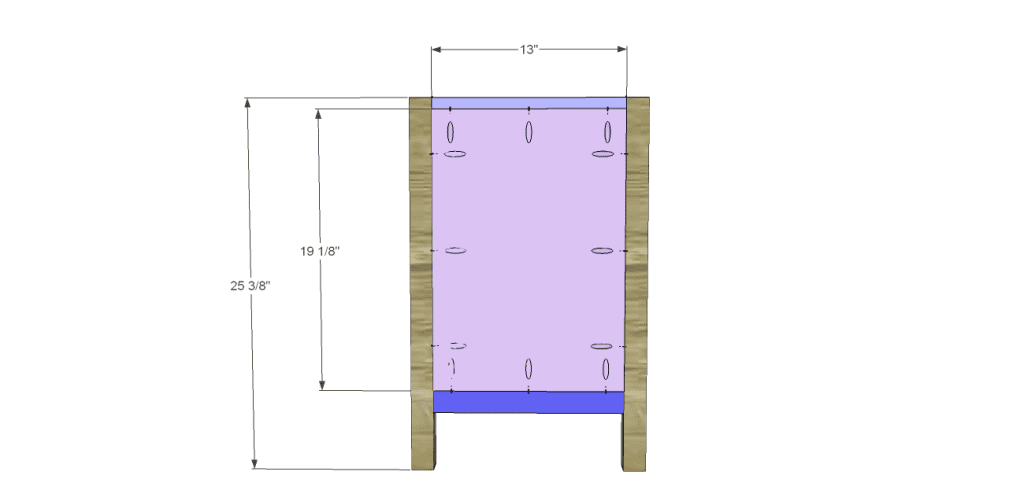
Step Two
Cut the pieces for the back frame and the back panel. With the pocket hole jig set for 1-1/2” material, drill pocket holes in each end of the 2×2 piece. Attach to the legs as shown (orienting the pocket holes so they face to the inside) using glue and 2-1/2” pocket hole screws.
Set the pocket hole jig for ¾” material and drill pocket holes in each end of the 1×2 piece as well as all four edges of the plywood panel. Secure the 1×2 piece to the legs (orienting the pocket holes so they face up and will be hidden by the top) using glue and 1-1/4” pocket hole screws. Insert the panel and position it so that the back face is flush with the inside face of the frame. Secure in place using glue and 1-1/4” pocket hole screws.
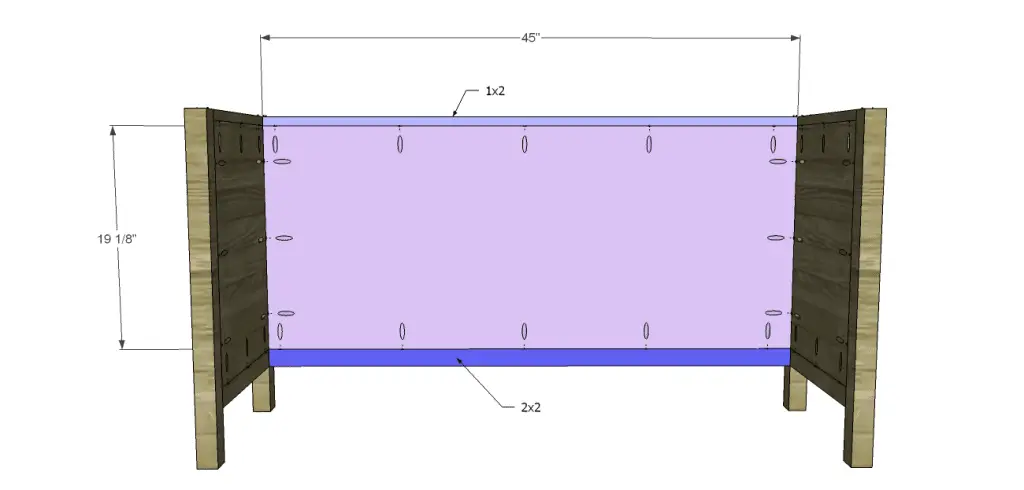
Step Three
Cut the pieces for the front stretchers. With the pocket hole jig set for the appropriate thickness for each piece, drill pocket holes in each end. Secure to the legs using glue and the appropriate pocket hole screw.
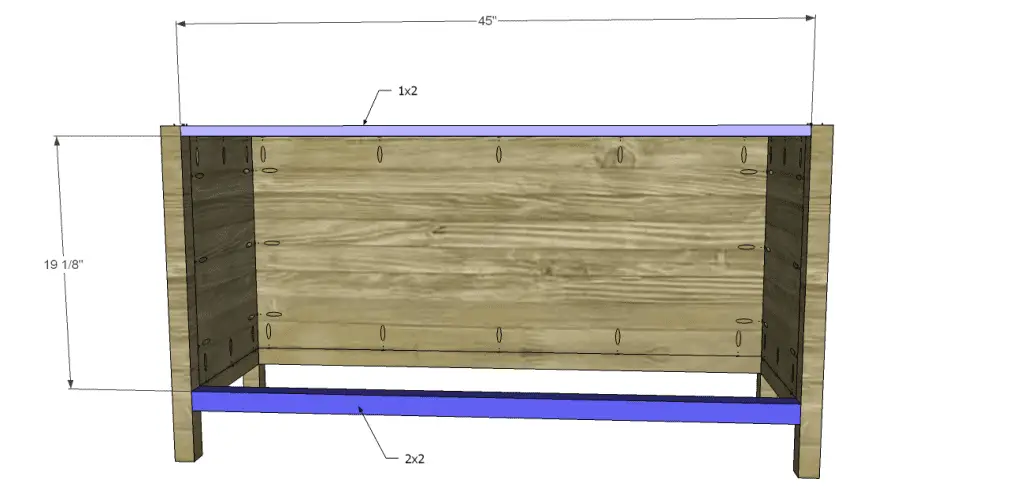
Step Four
Cut the piece for the bottom. Set the pocket hole jig for ¾” material and drill pocket holes in all four edges of the piece. Position at the bottom with the outside face flush with the top of the lower front stretcher then secure using glue and 1-1/4” pocket hole screws.
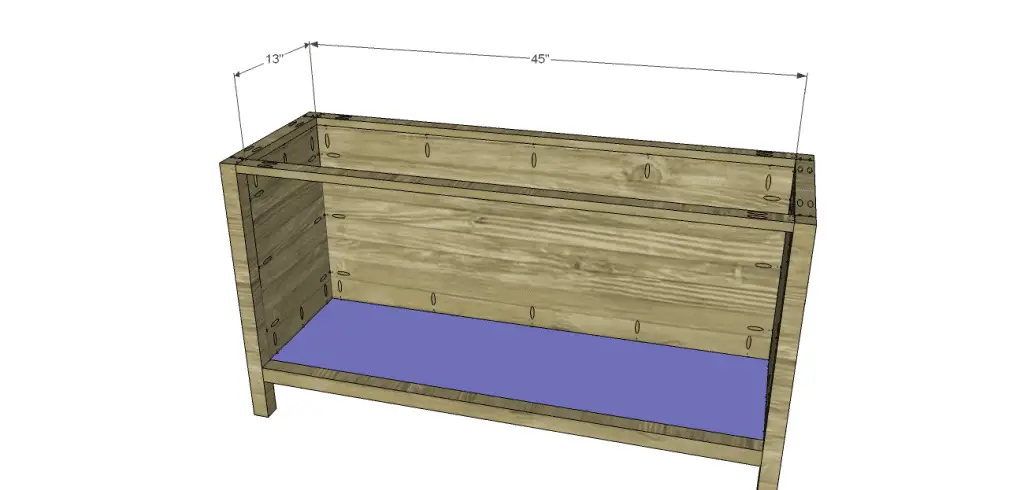
Step Five
Cut the pieces for the dividers. Set the pocket hole jig for 1-1/2” material and drill pocket holes in each end. Position the dividers as shown then secure using glue and 2-1/2” pocket hole screws.
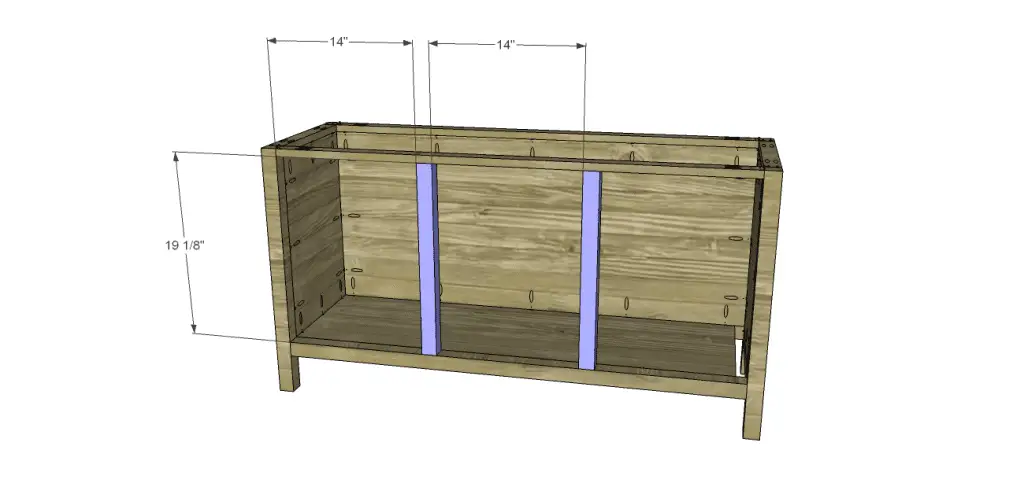
Step Six
Cut the pieces for the stretchers and drill pocket holes in each end. Position as shown then secure using glue and 2-1/2” pocket hole screws.
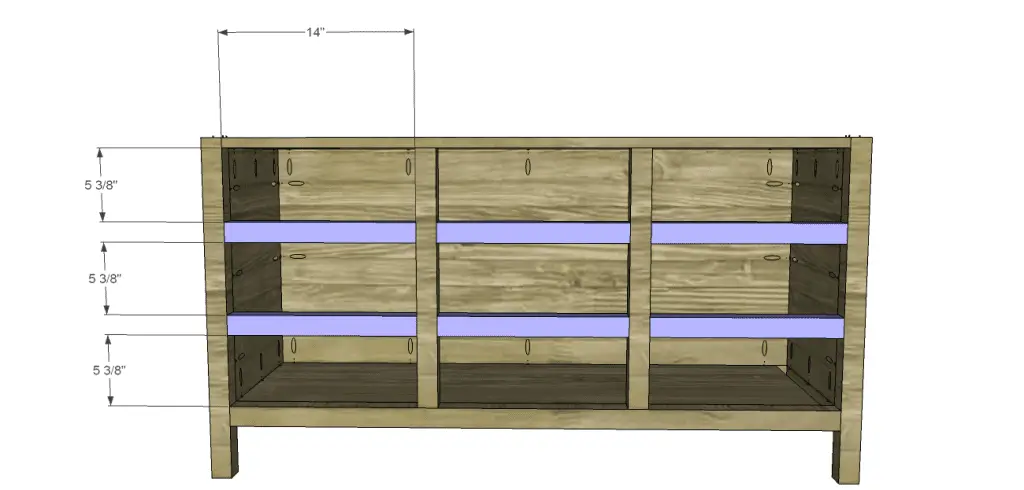
Step Seven
Cut the pieces for the slide supports and drill pocket holes in one end only of each piece. Position as shown with the pocket holes toward the dividers then secure using glue and 2-1/2” pocket hole screws. Secure the back of the supports using countersunk 2-1/2” screws.
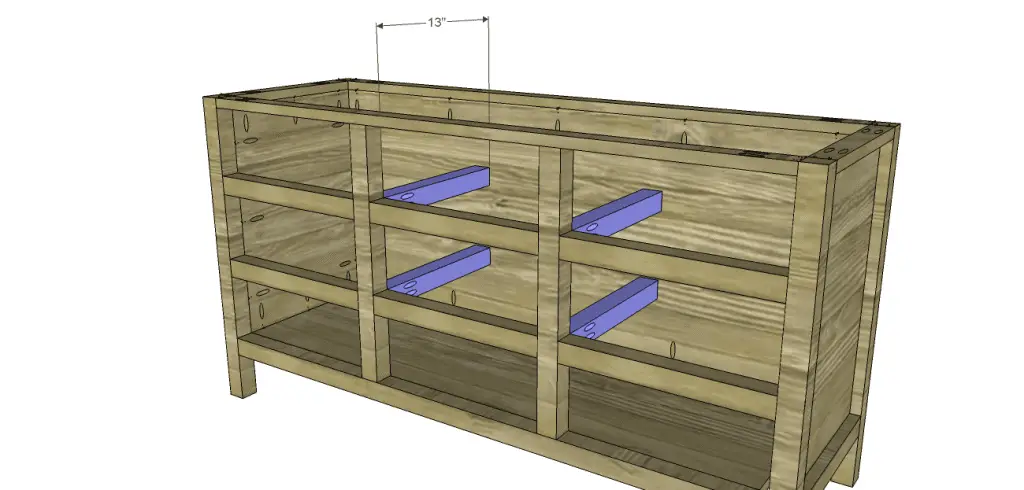
Step Eight
Cut the piece for the top. Secure to the cabinet using glue and 1-1/4” brad nails.
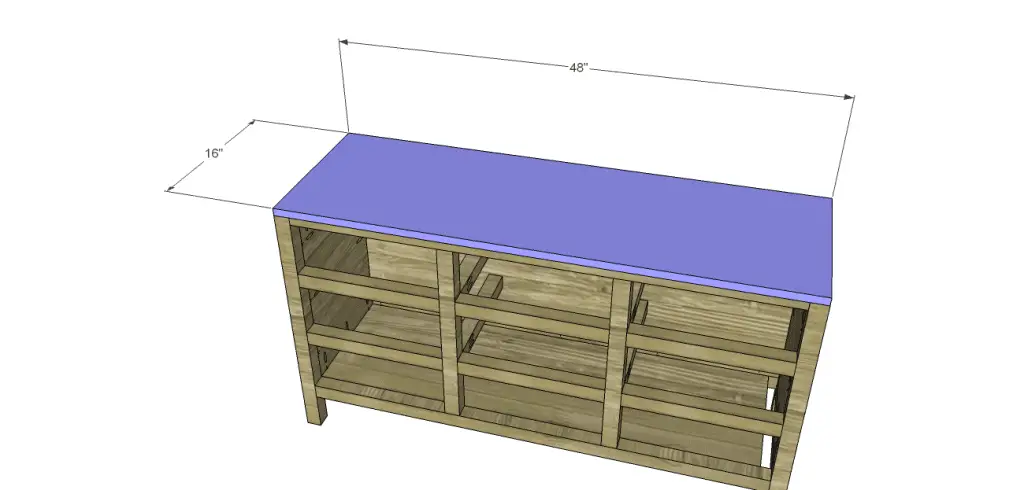
Step Nine
Cut the pieces for the drawer boxes. With the pocket hole jig set for ¾” material, drill pocket holes in each end of the side pieces as well as all four edges of the bottom. Assemble the drawer boxes as shown using glue and 1-1/4” pocket hole screws. Install the drawer slides according to the manufacturer’s installation instructions. This easy tutorial on installing drawer slides will be helpful!. Make any necessary adjustments.
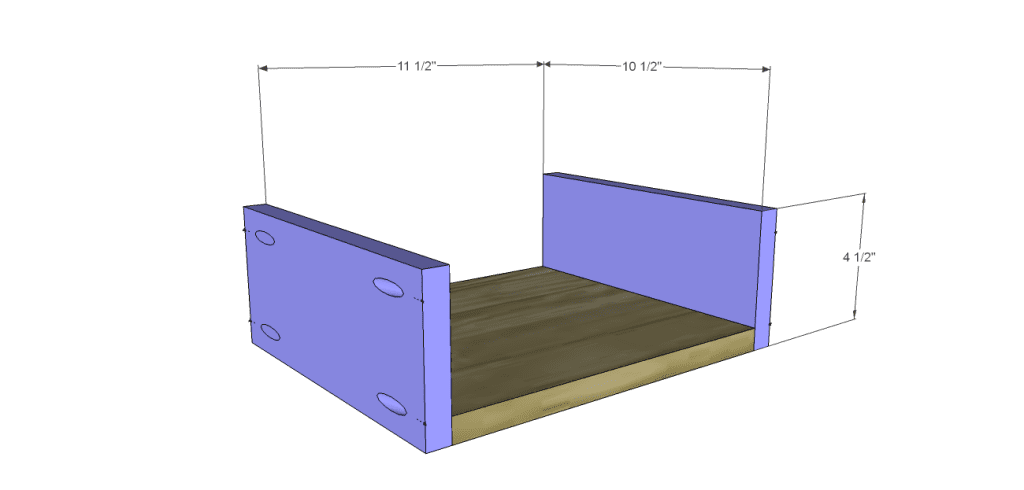
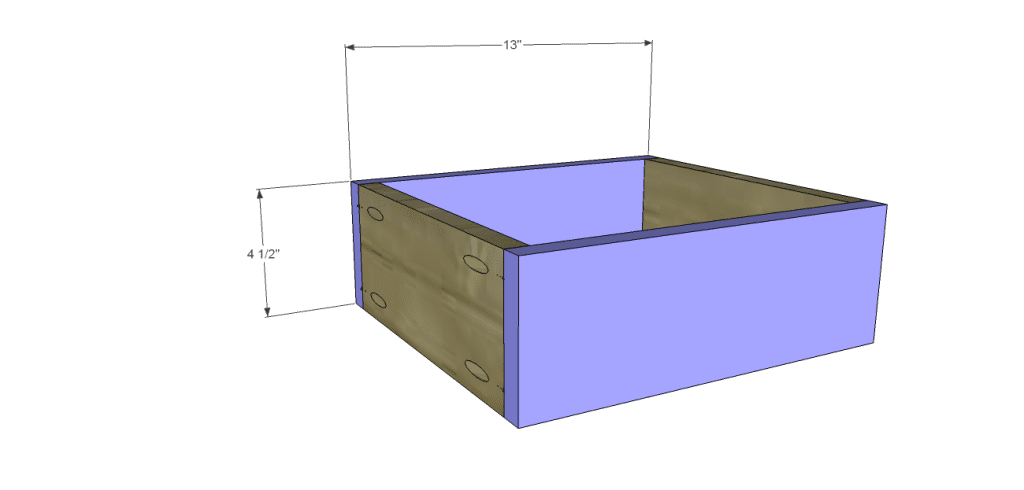
Step Ten
Cut the pieces for the drawer fronts. Mark the position for the drawer pulls and drill the holes. Shim the drawer front in the opening (there will be a 1/8” gap around all sides of the front in the opening) then drive screws through the holes for the pulls into the drawer boxes. Open the drawer then secure the front with countersunk 1-1/4” screws from the inside. Make any necessary adjustments then finish drilling the holes for the pulls.
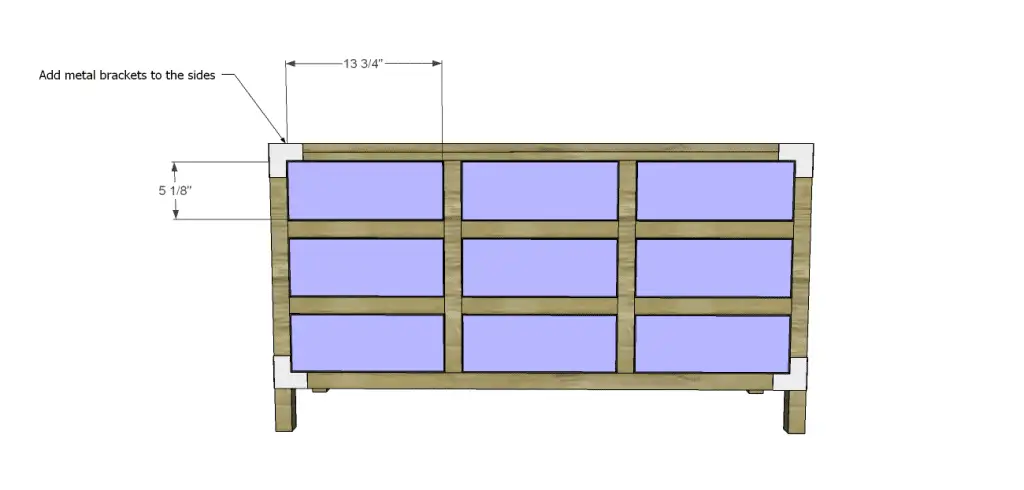
Finish as desired! The optional brackets can be added after finishing, as well as any other “decoration” to the drawer fronts!
Easy-peasy, right? These plans to build a dresser are perfect for first-timers looking to build a substantial piece of furniture, as well as those who are more experienced just looking for an easy build. Got a request for another piece of furniture? Send me an email at cher {at} designs by studioc {dot} com. I’d be happy to create the perfect plans for you!
Originally posted 2013-10-28 08:00:39.


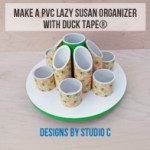
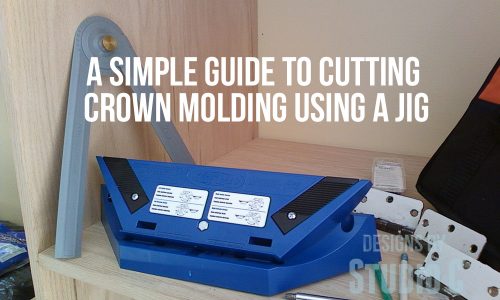
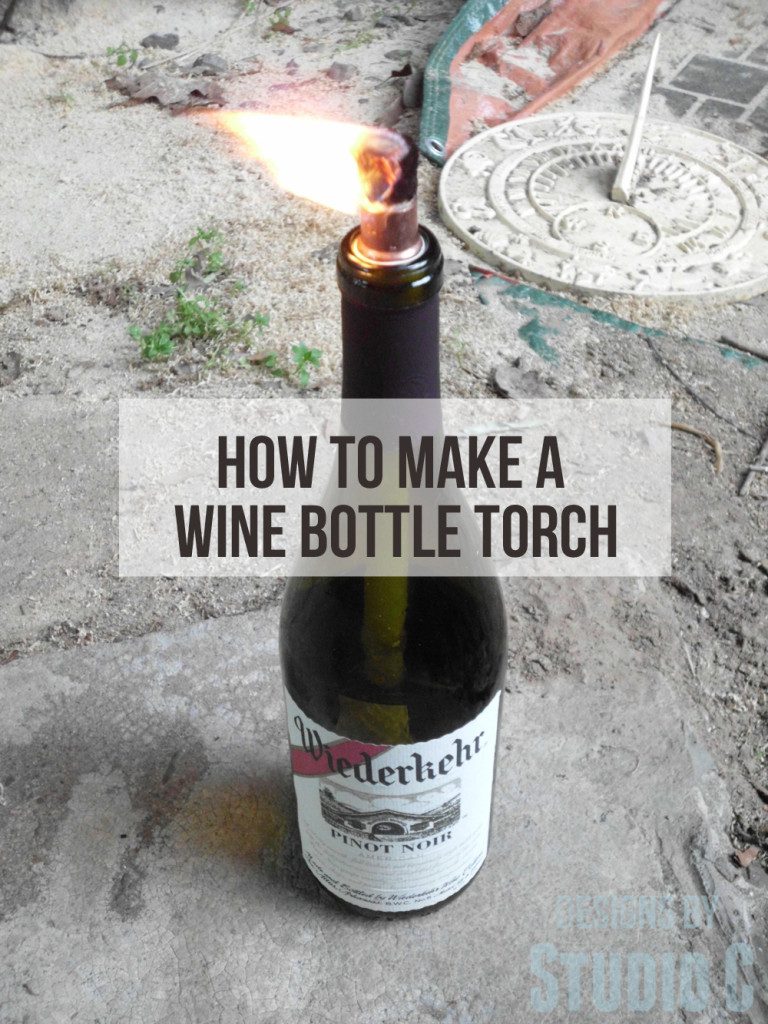
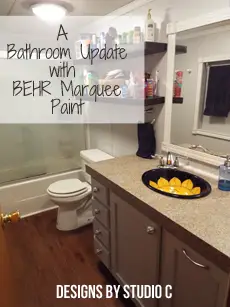
Comments are closed.